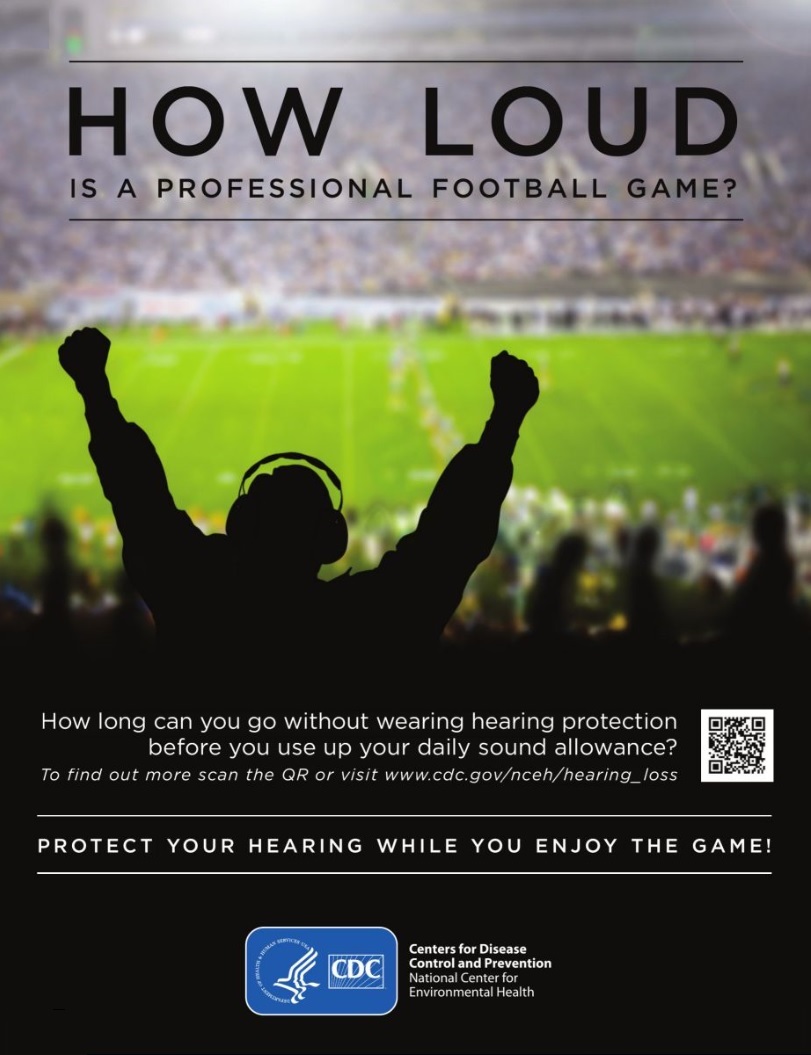
Sports — recreational, collegiate, or professional has one thing in common. Ready for the profoundly philosophical answer? Sports, no matter the venue, are competitive. While the competition in games is perhaps what has drawn our interest since the beginning of civilization, a new kind of competition involving the spectators and not the athletes is finally bringing the attention of health agencies.
The Arrowhead Stadium is listed in the Guinness Book of World Records to have hosted the loudest crowd roar on September 29, 2014. The “roar” listed at 142.2 dBA was the act that reclaimed the record from another sports stadium out on the western coast of the United States. If you have been to any sporting event at an indoor arena, you perhaps even participated in the jumbotron inspired bouts of “getting loud.” One might as well be standing under a jet plane as it takes off or be on board an aircraft carrier as fighter jets take off or land. There is one crucial difference though. On the aircraft carrier or the tarmac of an airfield, you would be encouraged and required to wear the heaviest duty hearing protection you could get your hands on.
The sight of an arena or stadium full of fans with earmuffs on would perhaps be a little unrealistic. Not to mention all the miscommunication when discussing the referee’s bad calls with your neighbor. Professional organizations and individual professionals have been trying to increase awareness of the possible ill effects of these noisy entertainment venues for a while.
Here is the good news — the CDC is getting into the act. The CDC National Center for Environmental Health (NCEH) has procured one-page advertisements in official printed sports programs for the National Hockey League (NHL), the National Basketball Association (NBA) and the National Football League (NFL). This critical effort in public awareness will include a link to their online quiz about noise exposure and hearing health. Thank you, CDC.
Learn more on how “Loud Noise Can Cause Hearing Loss.”
Recent Posts
CMS Sets Medically Unlikely Edit for Key Audiology Codes
The Centers for Medicare and Medicaid Services (CMS) has established a Medically Unlikely Edit (MUE) of two units per date of service for Current Procedural Terminology (CPT®) codes 92629, 92632,…
Allergies in U.S. Adults
Individuals who live in colder areas of the country may be eagerly awaiting the arrival of spring and its associated warmer weather. Others may be…
Securing Federal Loan Access for Audiology Students: Comments Close March 2
The Academy is pursuing a two-pronged strategy through Congress and the Department of Education to protect federal student loan access for AuD students. Both pathways…


